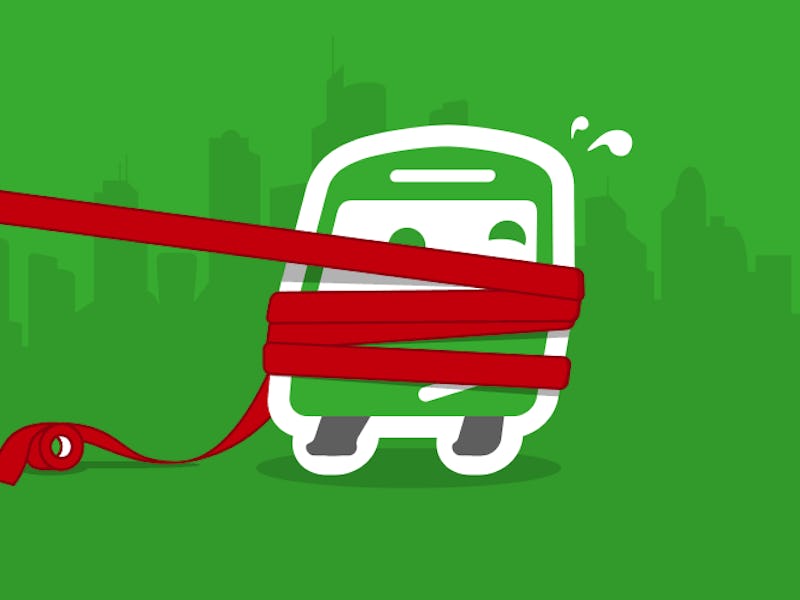Citymapper wants to make the bus work more like a taxi and free it from its restrictive routes. The journey planning app has taken the wraps off Smart Ride, which builds on its previous experiments to offer an eight-seater vehicle with a route that responds to user demand.
“It’s a bit like a bus because it has stops, it’s a bit like a cab because you book it and it has guaranteed seats, and it’s a bit like a metro because it has a network of roads,” Omid Ashtari, Citymapper president and head of business, told The Guardian in a Wednesday story.
The London service builds on the lessons learned from the Smart Bus pop-up route, a May 2017 attempt to create a “bus of the future” that offered real-time vehicle tracking on the user’s phone, a large passenger-facing screen displaying a wealth of travel information, and even a set of USB ports for charging phones.
Unfortunately, as Citymapper explained in a Tuesday Medium post, the Transport for London regulatory body that oversees the capital’s transit licensing has specific instructions about what counts as a bus. More than eight seats, and you have to follow fixed routes and schedules that can take weeks to alter. The company criticized these rules, which were first developed in 1831 for the carriages on the city streets, as “regulation for horses”:
Citymapper's smart bus pulled by a horse.
Instead, Citymapper will use licensed private hire drivers to fall under taxi rules, sticking to the eight-seat rule so it can change the route to better fit demand. The company claims that with its previous bus routes, it knew after just one weekend of service how it could better change the route.
While the bus may seem like an outdated and hated mode of transport, many experts see it as key to future transit. Elon Musk has spoken about his desire to build a vehicle that users can hail with their smartphone, ferrying people and dropping them off as needed. Amos Haggiag, one of the major players behind Las Vegas’s autonomous bus program, has even claimed that cities may ban private vehicles from downtown roads and encourage bus use to ease congestion.
However, Transport for London’s reluctance to give tech firms looser rules on transit is less surprising considering its issues with Uber. In September 2017, the body denied Uber’s license renewal, describing it as “not fit and proper.”
“Uber has made cities nervous, making collaboration hard for others,” Citymapper said in its blog post. “The first generation of transport tech has often given cities a headache. This makes it hard for other players to engage in a meaningful manner.”
For now, it seems Citymapper may have found a solution with Smart Ride.
